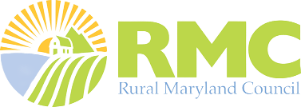The Rural Maryland Council is now accepting Letters of Intent for the Fiscal Year 2024 Grant Programs
The Rural Maryland Council is now accepting letters of intent for the Fiscal Year 2024 grant programs, which includes expansions of several programs to better meet rural community needs. We thank Governor Wes Moore and the Presiding Officers Senate President Bill Ferguson and Speaker Adrienne Jones for including over $9,000,000 in the Fiscal Year 2024 State Operating Budget to support the Rural Maryland Prosperity Investment Fund (RMPIF) and the Maryland Agricultural Education and Rural Development Assistance Fund (MAERDAF). Deadlines for grant
submissions is May 19, 2023, at 11:59pm.
“We are thrilled to receive this valuable funding that creates a positive economic impact for rural
communities across the State.” says Susan O’Neill, RMC Board Chair
The Rural Maryland Prosperity Investment Fund targets investment to promote economic prosperity in Maryland’s traditionally disadvantaged and underserved rural communities by sustaining efforts to promote rural regional cooperation, facilitating entrepreneurial activities, and supporting key community colleges and nonprofit organizations. This fund will support the Rural Maryland Council’s activities and the Maryland Agricultural Education and Rural Development Assistance Fund (MAERDAF) which provides capacity-building funds to rural nonprofit service providers. It will also support the state’s five rural regional councils, regional infrastructure projects, rural entrepreneurship development (New Additions to Entrepreneurship Include – workforce
development, cooperative development, and agricultural development), rural community development, and rural health care organizations.
Within this year’s RMPIF budget, there is an additional $300,000 dedicated to projects that support the Rural Nonemergency Medical Transportation Pilot program. These proposals are to address nonemergency health and human services transportation projects that must include at a minimum interregional transportation. As with all RMPIF projects, applicants must be able to measure the impact of the project, including populations served and improved health outcomes.
The RMPIF and MAERDAF grant programs have provided substantial amounts of needed opportunities and resources to our rural communities over the years. With the State’s investment, an additional $67 million in federal, local, and private funding has been directed into our rural areas. Overall, the RMPIF program between 2018 and 2021 has resulted in $124 million in economic impact and $40.9 million in employee compensation. The MAERDAF program has provided $12.1 million in additional economic impact and $4.4 million in employee compensation.
The two-phase online grant application process opened on Monday, April 24, 2023, and the Phase 1 –
Letter of Intent will be due by Friday, May 19, 2023, at 11:59 pm. The Council has started to host grant information sessions across the State. These information sessions are important opportunities for participants to meet RMC staff and learn about the Council’s two grant programs. Upcoming sessions will take place on Monday, May 1, 2023, in Southern Maryland at Annmarie Sculpture Garden and Arts Center from 12pm to 2pm and on Thursday, May 4, 2023, in Western Maryland at the Frederick Innovative Technology Center.
Learn more about the grant programs and register for an upcoming grant information session by
visiting the RMC website – rural.maryland.gov/grant opportunities.
Important Grant Dates
Grant Process Opened: Monday, April 24, 2023
Phase I – Letter of Intent (LOI) Deadline: Friday, May 19, 2023
Grantees will be notified the week of June 12, 2023, on the Phase I decisions.
Phase II – Full Application Due: Friday, July 14, 2023
Awards Announced the week of August 14, 2023
The Rural Maryland Council (RMC) operates under the direction of a 40-member executive board in a nonpartisan and nondiscriminatory manner. It serves as the state’s federally designated rural development council and functions as the official voice for rural Maryland. The RMC advocates for rural communities and businesses across the state to flourish and to gain parity to their suburban and urban counterparts. The RMC envisions a future where residents in rural communities are achieving success in education and employment, have access to affordable, quality health care and other vital public services, and live in an environment where natural and cultural resources are being sustained for future generations.
